A U.S. military "Red Team" charged with challenging conventional thinking says that words like "jihad" and "Islamist" are needed in discussing 21st-century terrorism and that federal agencies that avoid the words soft-pedaled the link between religious extremism and violent acts.
"We must reject the notion that Islam and Arabic stand apart as bodies of knowledge that cannot be critiqued or discussed as elements of understanding our enemies in this conflict," said the internal report, a copy of which was obtained by The Washington Times.
The report, "Freedom of Speech in Jihad Analysis: Debunking the Myth of Offensive Words," was written by unnamed civilian analysts and contractors for the U.S. Central Command, which is responsible for the Middle East and South Asia. It is thought to be the first official document to challenge those in the government who seek to downplay the role of Islam in inspiring some terrorist violence.
"The fact is our enemies cite the source of Islam as the foundation for their global jihad," the report said. "We are left with the responsibility of portraying our enemies in an honest and accurate fashion."
The report contributes to an ongoing debate within the U.S. government and military over the roots of terrorism, its relationship to Islam and how best to counter extremist ideology.
It cites two Bush administration documents that appear to minimize any link between radical Islam and terrorism.
A January 2008 memorandum from the Department of Homeland Security's Office for Civil Rights and Civil Liberties stated that unidentified American Muslims recommended that the U.S. government avoid using the terms "jihadist," "Islamic terrorist," "Islamist" or "holy warrior," asserting that would create a "negative climate" and spawn acts of harassment and discrimination.
Dan Sutherland, Homeland Security officer for civil rights and civil liberties, said the document is not department policy.
"This was a compilation of recommendations and thoughts provided to us by some prominent American Muslim thinkers and never was intended to be Department of Homeland Security policy," he said in an interview.
"If a paper from another part of government says this doesn't make sense, that's a valid point. This memo is a thought piece meant to stir discussion."...
12 years ago
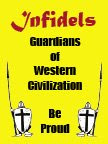




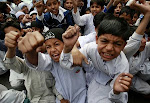
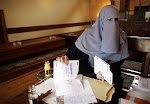
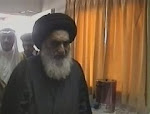

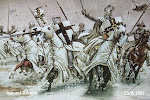



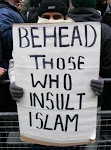








No comments:
Post a Comment